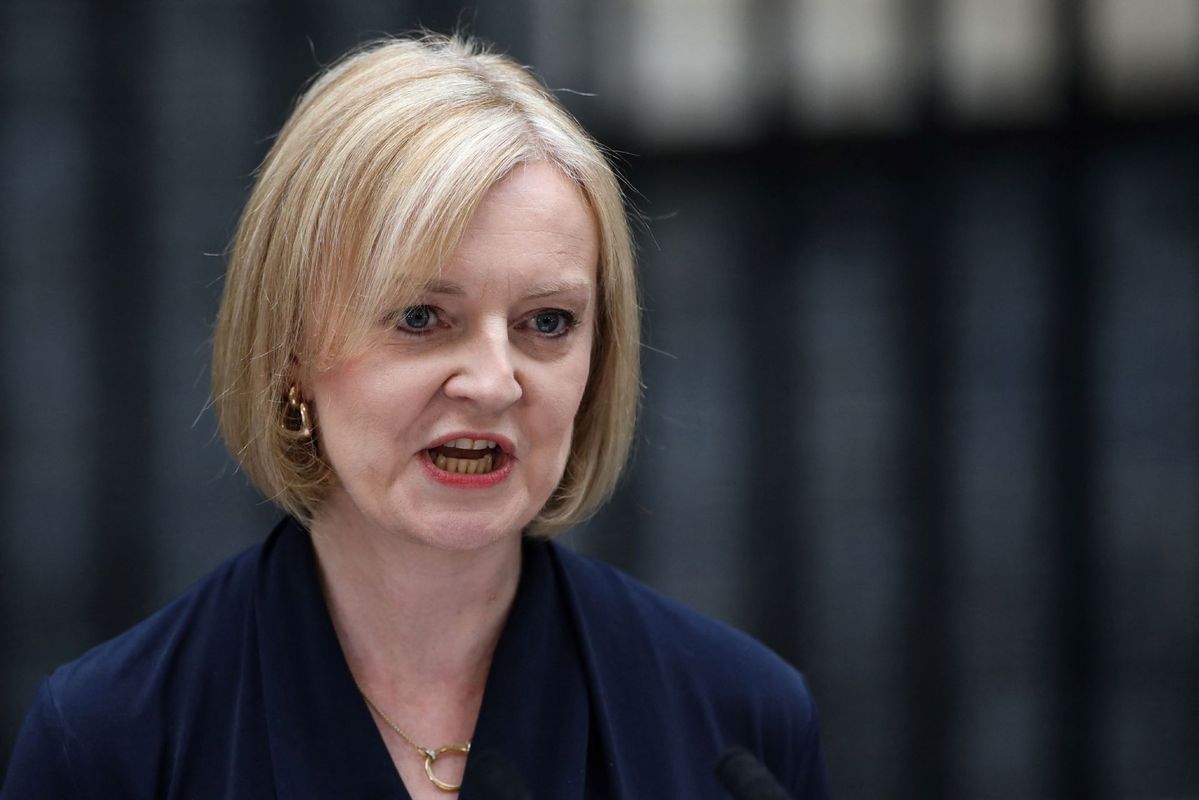New British PM Truss faces big challenges
By ANGUS MCNEICE in London | China Daily Global | Updated: 2022-09-07 09:59

She is expected to outline plans toward end of week, amid rumors of energy price freeze
Queen Elizabeth II appointed Liz Truss as the prime minister of the United Kingdom on Tuesday, drawing to a close what the new leader described as "the longest job interview in history".
It is easy to see why it may have felt that way. Truss threw her hat in the ring in July, when a series of controversies forced Boris Johnson to announce his resignation. And with every day that followed, Truss and her fellow Conservative Party leadership candidates saw the situation in the UK go from bad to worse.
Over the course of the two-month campaign, UK energy industry regulator Ofgem announced that the average annual household energy bill was set to rise by 80 percent to more than £3,500 ($4,500) starting in autumn, having already risen to around £1,900 in April from £575 last year. Economists then warned that the UK faced the threat of stagflation-a combination of prolonged low growth and high inflation-for the first time since the 1970s.
As Truss began to emerge as the leadership front-runner, markets grew anxious. Truss was not courting the national electorate in this campaign; instead, she had to convince a majority within the 200,000-member Conservative Party. She did this by focusing on core Conservative values, including the promise of lower taxes, and last week the British pound began to slide due to concerns over how exactly support packages for the cost of living crisis would be financed.
"To defeat her rivals, Liz Truss threw plenty of red meat at this unrepresentative, mainly white, male, southern, prosperous, aging, and anti-European sample of the electorate," said Peter Westmacott, a fellow with the Europe Center at the Atlantic Council think tank. "This included commitments to cut taxes that have been widely criticized by economists."
Truss is expected to outline her immediate plans for the nation toward the end of this week, and early rumors of a freeze on energy bills saw the pound recover somewhat on Tuesday. The draft plan would see the energy industry regulator sidelined, and ministers would set the cap on annual household energy bills at or below the current level of £1,971, according to policy documents seen by Bloomberg. This would prevent scheduled October and January price hikes from hitting households.
The UK government would loan the difference to the energy companies, at a cost of around£130 billion over the next 18 months. The companies are in favor of this plan, Bloomberg said, as it effectively rules out a windfall tax. The loans would be repaid over the next 10 to 20 years through supplements to customer bills, the BBC reported.
The cancellation of the October rise in bills will be welcomed by millions of people in the UK, many of whom face the real prospect of prioritizing food over fuel this winter. But Truss' hard-line stance on taxation has some concerned over the long-term health of the British economy.
"Slashing taxes while pledging extra help for households facing punishing energy bills risks pushing the country much further into the red while fanning the inflation fire," said Susannah Streeter, a markets analyst at financial services company Hargreaves Lansdown. "The worry is that far from pulling the economy out of recession, the policies of Liz Truss risk a prolonged period of stagflation."
Looking beyond UK borders promises more turbulence as Truss, a former foreign secretary, has already ruffled the feathers of allies and trade partners. She surprised many during a campaign event in August, when she said the "jury is still out" on whether French President Emmanuel Macron was a "friend or a foe" of the UK. Both Macron and Johnson swiftly insisted that the long-standing "friendship" between the two countries was not in doubt.
Truss' rhetoric on China has been similarly combative. As foreign secretary she said she wanted to work with G7 nations in order to reduce "strategic dependence" on China and also suggested a "New Commonwealth Deal" that would strengthen economic ties across the Commonwealth and "act as a vital bulwark to China".
"Stances from her camp involve questioning the UK's relationship with China and with our closest allies," said Catarina Thomson, who is an associate professor of international relations at Exeter University. "Can nationalist forces sit comfortably with international roles the UK has excelled at in the past, such as soft power?"
On the issue of the international fight against global warming, environmentalists have pointed to a dissonance in her policy proposals, which include both a pledge to "eradicate the UK's contribution to climate change" as well as a promise to expand gas and oil projects in the North Sea "pretty quickly".
























